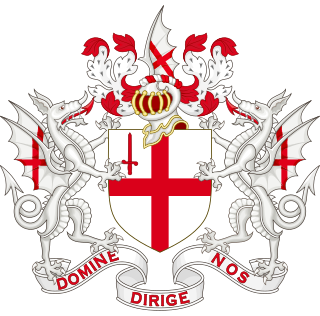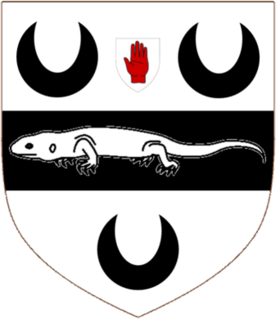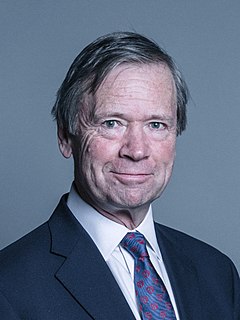
John Norman was Mayor of London. [1] [2]
He was appointed a Sheriff of the City of London in 1234 and elected mayor in 1250.
According to Burke, Norman's coat of arms is blazoned: Argent on a chief sable three leopards faces or . [3]

John Norman was Mayor of London. [1] [2]
He was appointed a Sheriff of the City of London in 1234 and elected mayor in 1250.
According to Burke, Norman's coat of arms is blazoned: Argent on a chief sable three leopards faces or . [3]
The Lord Mayor of London is the mayor of the City of London and the leader of the City of London Corporation. Within the City, the Lord Mayor is accorded precedence over all individuals except the sovereign and retains various traditional powers, rights, and privileges, including the title and style The Right Honourable Lord Mayor of London.

The City of London Corporation, officially and legally the Mayor and Commonalty and Citizens of the City of London, is the municipal governing body of the City of London, the historic centre of London and the location of much of the United Kingdom's financial sector.
Two sheriffs are elected annually for the City of London by the Liverymen of the City livery companies. Today's sheriffs have only nominal duties, but the historical officeholders had important judicial responsibilities. They have attended the justices at the Central Criminal Court, Old Bailey, since its original role as the court for the City and Middlesex.
Sir Clive Haydn Martin, is a British businessman who was Lord Mayor of London from 1999 to 2000.
Sir William Rowe was Sheriff of London in 1583 and Lord Mayor of London in 1592. He was Master of the Worshipful Company of Ironmongers and was knighted 1593. He died on 23 October 1593. Sir William's cousin Sir Thomas Rowe was also Lord Mayor of London, in 1568, as was Sir Thomas's son Henry Rowe in 1607.

John Norman was a 15th-century draper, sheriff, alderman and for a term the Lord Mayor of London. He is known as being the first lord mayor to take a boat to Westminster to pledge his allegiance. Up until that point lord mayors of London had ridden or walked to Westminster in the yearly pageant on Lord Mayor's Day. Such river pageants existed until 1856, and today the lord mayor rides within a state coach during the pageant which is known today as Lord Mayor's Show. John Norman left his name to a song, supposedly created by the watermen who rowed him to Westminster, titled "Row the Boat, Norman".
Sir John Key, 1st Baronet was a wholesale stationer and Whig politician in England.

Sir Rupert De la Bère, 1st Baronet, was a British businessman, soldier, and Conservative Party politician. He was the 625th Lord Mayor of London.

Jeffrey Richard de Corban Evans, 4th Baron Mountevans, is a London shipbroker and British hereditary peer, who served as Lord Mayor of London from 2015 to 2016.
Sir John le Blund was Mayor of London, England for eight consecutive years.
Christopher Magnay was an English merchant who was Lord Mayor of London from 1821–22.
Henry le Walleis was a 13th-century English politician and Mayor of London. His origins are obscure; he was an outsider to London and may have been Welsh by birth. After making his fortune in the wine trade, he became an alderman in 1269 and sheriff in 1270. As alderman, he represented the ward of Cordwainer. He went on to serve five terms as mayor.
Sir Robert Chichele was a 15th-century English merchant and Lord Mayor of London.
Sir Cuthbert Buckell was a 16th-century English merchant and Lord Mayor of London. He was born in Westmorland, the son of Christopher Buckle. He was a member of the Vintners Company of London. He later pursued political offices, and was elected alderman of Farrington ward in 1582. That same year, he served a partial term as one of the Sheriffs of London, to finish the term of John Haydon, who had died in office. He was elected mayor in 1593. One notable event of his term was the Dutch Church Libel, in which bills were posted in London against French Protestant refugees; Buckell received a letter from the Privy Council urging him to find and interrogate those responsible. Buckell's term was also marked by a virulent epidemic of plague, as a result of which he ordered all of the theatres of London closed. He died before completing his term of office. His term was completed by Richard Martin. He was a generous benefactor to Brough-under-Stainmore, both in life and in his will. He was buried at St Mary-at-Hill in London. Among his descendants was Sarah Crowe, wife of John Carpenter, 4th Earl of Tyrconnell.
William Webbe was a 16th-century English merchant and Lord Mayor of London. He was the son of John Webbe, a clothier of Reading in Berkshire. Webbe moved to London and joined the Salters' Company, one of the livery companies of the city. He was elected alderman in 1581, then as one of the Sheriffs of London later the same year. He was elected mayor in 1591, succeeding Rowland Heyward. While serving as mayor, he was the subject of a dedication of one of the works of the author Richard Johnson, his "Nine Worthies of London." After his term, he served as the president of the Bridewell and Bethlehem Hospitals, from 1594 until his death. He died in 1599.
Andrew Aubrey was an English merchant and politician, who served three terms as Lord Mayor of London during the reign of Edward III.
Sir John Harte was a 16th-century English merchant who was one of the principal founders of the English East India Company as well as a Lord Mayor of London. He was a native of Kilburn who became a grocer in the city of London. He was elected one of the Sheriffs of London in 1579, serving with future mayor Martin Calthorp, and later elected Lord Mayor of London in 1589. He purchased a large mansion, known as Oxford House, that had once belonged to the Earls of Oxford and later to Lord Mayor Ambrose Nicholas. One of his daughters married Sir George Bolles, a later Lord Mayor of London. Harte died in 1604.

Sir William Anthony Bowater Russell, is a British financier who served as the 692nd Lord Mayor of the City of London from 2019 to 2021.